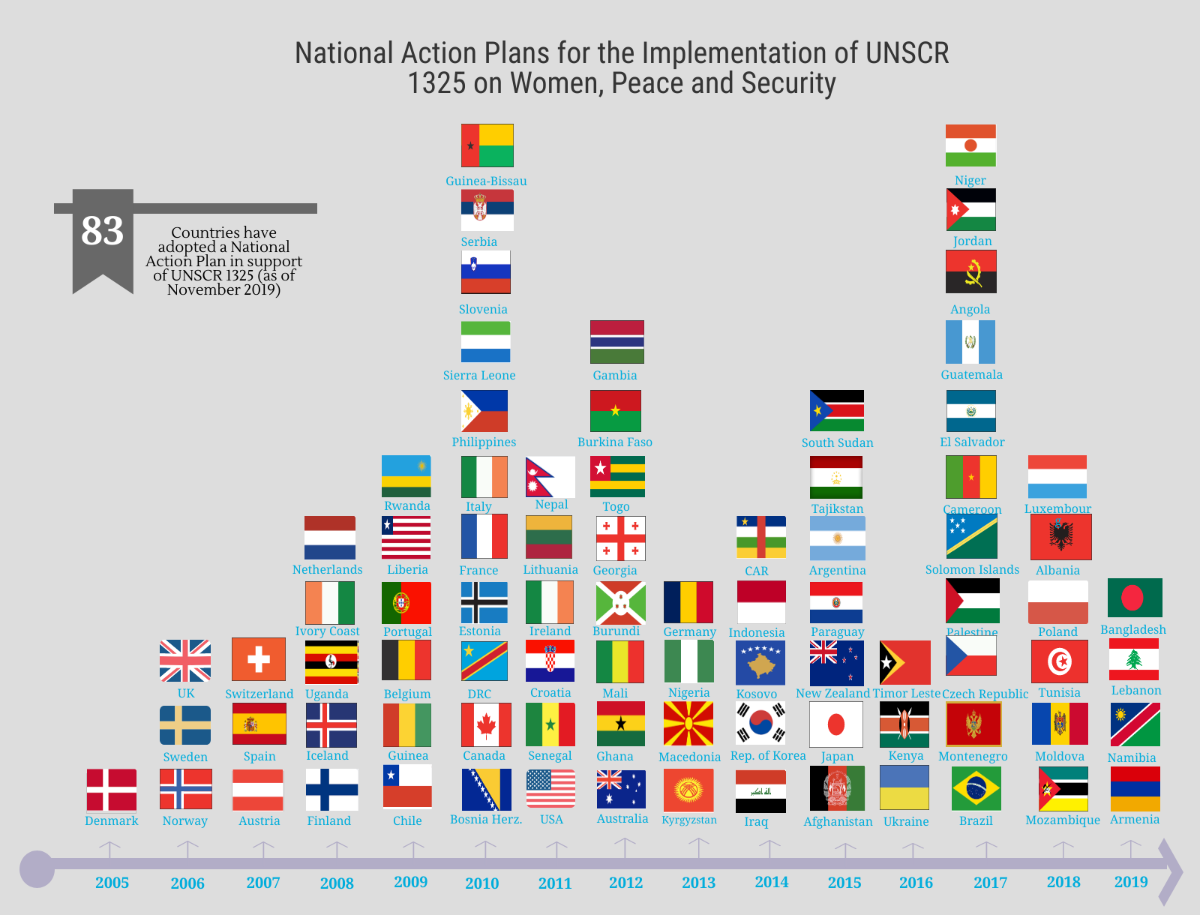2019 National Action on Women, Peace and Security
In 2019, Member States continued to demonstrate their commitment to the WPS agenda. WILPF analysis shows that 83 UN Member States (43% of all UN Member States) have UNSCR 1325 National Action Plans (NAPs) and a number of Member States have adopted policies with a WPS component. Four new NAPs were launched in 2019, including Armenia, Namibia, Lebanon, and Bangladesh. In addition, in 2019, Ireland and Norway adopted their third and fourth NAPs, respectively.
Of the 83 NAPs adopted to date, only 28 (34%) include some allocated budget for implementation. Furthermore, 25 (30%) include references to disarmament and provide specific actions to disarm society. Although civil society has always been at the forefront of efforts to strengthen the implementation of the WPS Agenda, only 62 NAPs (75%) allocate a specific role to civil society in the different stages of the NAP implementation process, with this role often limited to an “advisory” position.
Despite the progress, this data demonstrates that numerous challenges are yet to be addressed, including by learning from existing good practices. The updated Ireland NAP highlights the importance of disarmament for promoting peaceful and inclusive societies, and includes a section on disarmament as a tool for conflict prevention. In the Lebanese NAP, civil society is presented as an essential partner in developing the country’s WPS implementation plan. The Norwegian NAP puts a strong emphasis on the need for structural change that enables women’s meaningful participation, including through addressing the situation of women human rights defenders and refugees.

